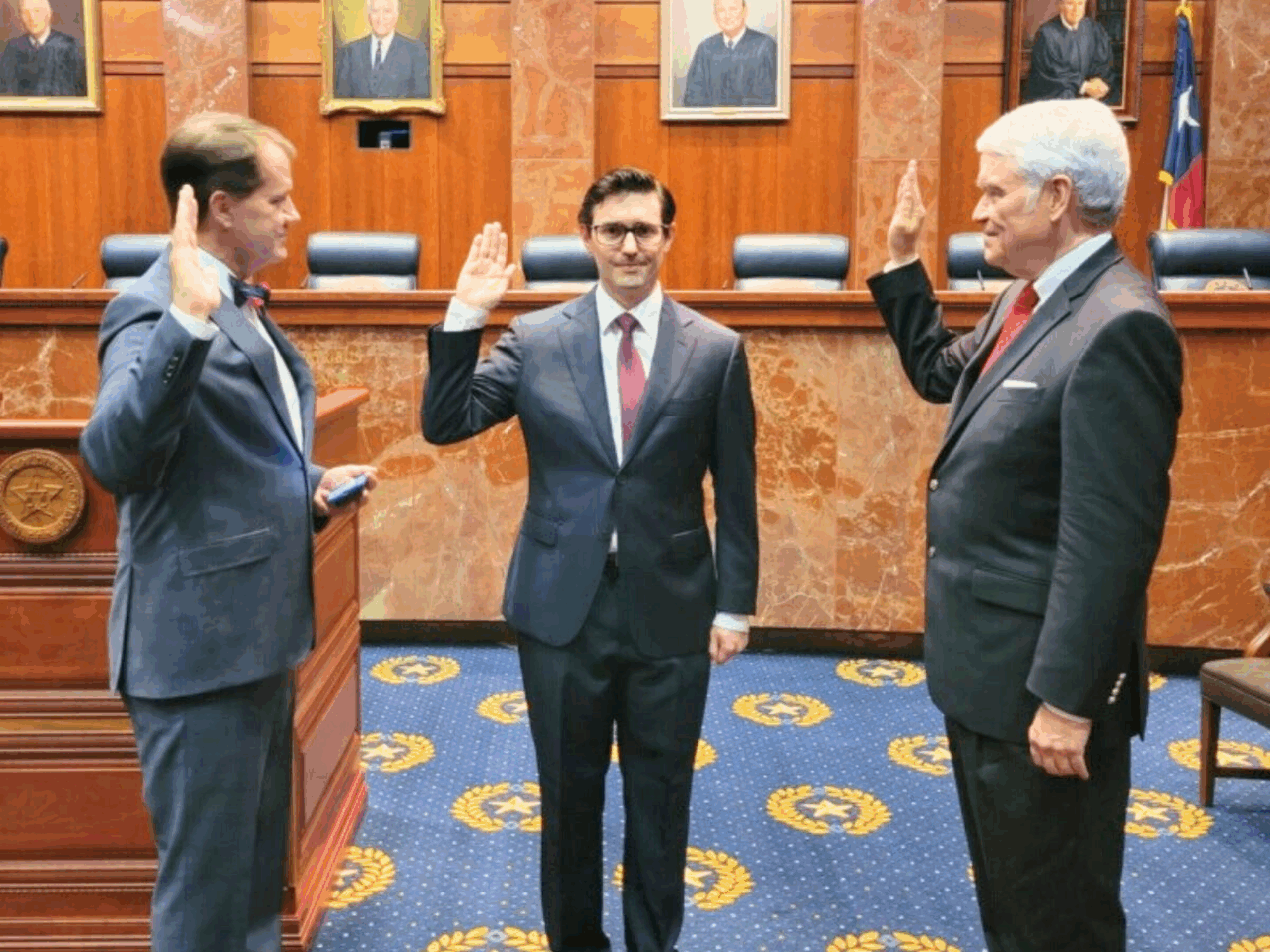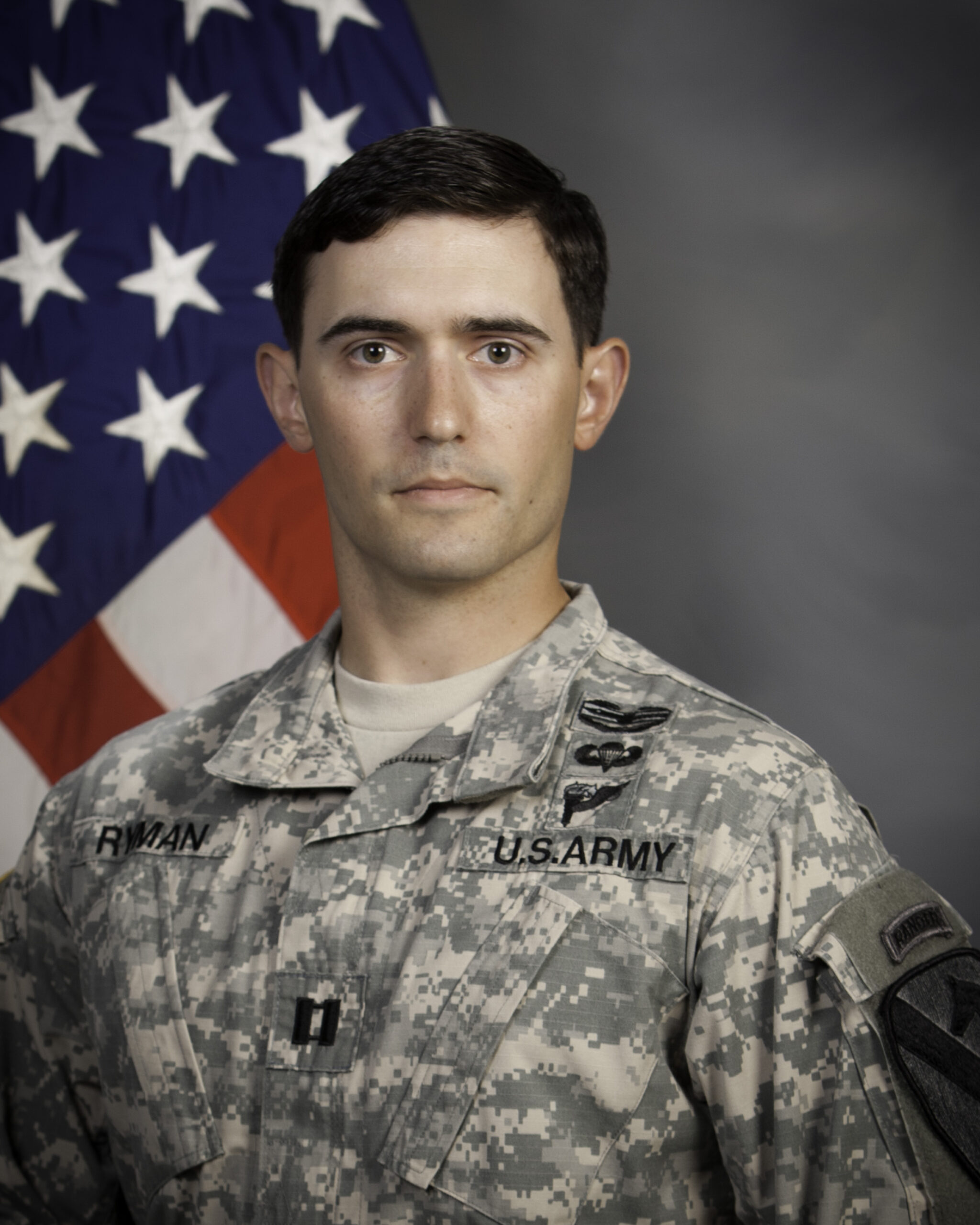
Kyle Ryman ’20 arrived at Texas Law from the U.S. Army, where he was an infantry officer (Ranger Qualified). In his 3L year, Ryman was named a vice chancellor for earning the second-highest GPA in his graduating class, inducting him into the law school’s most prestigious honor society.
Previously an attorney with McKool Smith in Austin, today he’s principal attorney at Ryman Litigation PLLC in Round Rock, Texas.
In a recent LinkedIn post, Ryman noted, “After eight years serving in the Army, I expected my law school classmates fresh out of undergrad to run circles around me. Instead, I graduated in the top 1% from Texas Law. How? It wasn’t raw intelligence. It was systems and disciplined execution. In the Army, I built systems to train my soldiers for war. Then we executed. In law school, I did the same. I built my own ‘battle rhythm’ and ‘long-range training calendar’ to stay synced. Then I executed.’”
We recently asked Ryman to elaborate on his comments. Here’s what he told us.
In the Army, we had an expression: “Intelligence drives operations.” That means you don’t just send soldiers out; first, you determine where the bad guys are. That way, you’re not just poking blindly through the fog of war.
Before I started law school, I wanted to apply that concept. I had devoured a book by Andrew J. McClurg, “1L of a Ride,” to understand what was going to be expected of me. That was my intelligence gathering phase. Once I understood that the grading all revolves around final exams, I knew I had to build a system to prepare for them.
McClurg says that to do well on the final you’ve got to build an outline. To do that, I knew my inputs were going to be class attendance and reading. At the time, my wife was finishing medical school, so I shamelessly stole the techniques med students use to study for final exams: spaced repetition flashcards. I cobbled together a system of studying—a battle rhythm—where I would read for class and take notes as I read to develop a case brief, and I would then attend class and take notes on my case brief.
The military gave me discipline, but more than that, it gave me confidence that disciplined execution could lead to great outcomes.
In the Army, a commander wants a common operating picture in front of them of everything happening on the battlefield: Where are the helicopters, where’s the artillery, where are your forces and the enemy’s forces, and so on. It’s the same concept. I would take my notes from the reading and put my notes in class directly on top of them, so I’d have a common operating picture. While I was in class taking notes, and things were going rapid fire, I’d have my book in front of me, so I could see my highlighting from the reading and my case brief. It gave me a common operating picture during class.

My system was: read before class, develop the case brief, go to class, take notes, and at the end of the week synthesize those notes into an outline and then develop flash cards from the outline, so I could memorize it all for those closed book finals.
What that turned into was a battle rhythm—of preparing for class, developing my outline every week, and studying for finals—starting from the very first week of law school. That allowed me to develop a pre-populated calendar of recurring events, and when I needed to be studying, in class, and outlining. For example, if I had a Monday 9 a.m. class, I was reading for that class on Saturday or Sunday night. I also estimated the time requirements, so that as things happened throughout the semester, I could shift time blocks around the calendar. If I wanted two weeks to work solely on my final memo for the fall semester, I was able to plan backwards and read ahead for that two-week period. It’s what the Army calls a long-range training calendar, where you plan what tasks your subordinate units need to accomplish over time to, for example, get deployed to Afghanistan or get ready for the National Training Center. A long-range calendar lets you see visually scheduling conflicts.
My calendar ensured that I was getting everything done in accordance with my battle rhythm, while at the same time accounting for changes. Whenever things popped up— mentorship, meetings, social and networking events, interviews— I was able to react and stay synchronized. It all boils down to abstracting the lessons I learned in command in the Army and then executing with discipline.
It’s also about repetition. I had it on my long-range training calendar that I would get lots of practice exams before finals. I did 10 to 15 practice exams for every single class where I had a final—probably 30 to 45 total practice exams in the fall 1L semester. I walked into finals very practiced. I didn’t know how I was going to do, but I wasn’t scared, because I knew that I had done this before under similar timed conditions.
It doesn’t have to do with talent, it’s about the reps.
The military gave me discipline, but more than that, it gave me confidence that disciplined execution could lead to great outcomes.
For many law school students, the traditional studying method is an end-of-semester crunch. You don’t start outlining until towards the end of the semester, and then it’s a race to finish right before finals. The benefit is that you are condensing and synthesizing the law right at the end of the semester, so it’s fresh in your mind. Some people can do a ton of work right before the end of the semester, and they do quite well. You’ve got to remember that I was tied for No. 2 as vice chancellor. There was a guy ahead of me, and a talented woman tied with me, and neither of them used my system. So obviously, mine is not the only way!
When you start law school, you have the same potential as all your peers—I don’t believe anyone has a true material advantage. While I may not have started law school ahead of anybody else, by the end of it, there was a difference in people’s abilities to read cases, synthesize the law, and write persuasive briefs. And it doesn’t have to do with talent, it’s about the reps.
I don’t think I was smarter than any of my classmates. But I had a plan, and disciplined execution. So, I would say to any law student, “If you come in with a rock-solid system and execute it with discipline, you’re setting yourself up to excel.”
A prior story, “Path to a Patent,” focused on Ryman’s patent for an app based on his approach to educational success.
